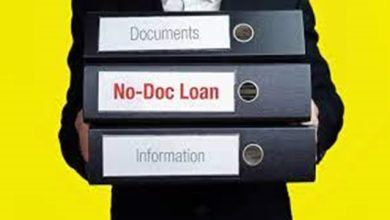5 Steps to Take if You Are in Financial Debt

Photo by RODNAE Productions from pexels
Debts can be used to achieve long-term goals such as acquiring a house, a car, and meeting the educational needs of your kids. However, too much debt can turn into bad debt resulting in bankruptcy and financial slavery. Despite this, there are several steps that you can take to regain your financial freedom whenever you are in any financial debt. In this blog, you will find the top five things that you should take to get out of any financial debt
1. Identify all Your Debts
You can never fight what you do not know. Thus, to get out of debt, you need to examine the outstanding debts in your financial accounts carefully. Some of the significant types of debts that individuals will find themselves into are overdue expenses, utility bills, unpaid taxes, bank loans, and medical debts. Additionally, you have also to examine the terms of each debt, and by this, we mean you have to account for the interest rates associated with each debt.
Once you have identified these debts, you need to take the extra step of making a good plan that will help you eliminate these debts. These could take the form of deciding to cut on the costs related to daily expenses such as fuel and energy.
2. Get a Consumer Proposal
Getting out of debt is not easy, making it essential to have the right professionals by your side. Financial debts could result in anxiety, stress, and depression, which make it impossible for a person in debt to make the right decisions. However, through a consumer proposal Canada agents’ assistance, you can successfully renegotiate your debt repayment plan and walk-in financial freedom once again.
The purpose of a consumer proposal is to help an individual get a more friendly loan settlement plan that will not overburden them nor cripple them financially during the debt repayment period. By acquiring a consumer proposal, an individual can repay the debt at a more friendly rate and at the same time avoid creditor action over their assets.
3. Have a Financial Budget
Budgeting for available funds remains to be one of the best strategies to help individuals live within their means and at the same time avoid overspending. Having a carefully thought budget will help you monitor daily and monthly spending and provide allowances for keeping savings for the future. Through budgeting, individuals are better equipped to make informed spending decisions using their scarce resources. In an economy, money is a scarce resource to satisfy the competing needs of individuals.
The catch is using a buget is that it will help you maintain a good balance between your income and expenses, giving you much control over your funds. If you can have the discipline of living within a budget, you will definitely walk out of any debt regardless of how big it may be. It’s also important to keep in mind that you should not throw your budget away once you have settled all your bills. The budget should be a close tool that will guide the decisions you will be making to avoid slipping into financial crises once again.
4. Set Aside an Emergency Fund Plan
The emergency fund refers to the money you will be saving daily or monthly depending on the flow of income to meet unexpected needs. The funds set aside will come in handy during financial crises, such as in the event you lose your job or engage in a fatal accident.
You must note that savings and emergency funds are not similar but have distinct roles. While you are free to use your savings to meet any expenses, the emergency fund is primarily for unexpected needs. In this case, the emergency fund can be used to handle college fees in the future, unexpected medical bills, and significant house repairs.
5. Have an Extra source of income
Monthly income may not be adequate to meet your expenses and repay the outstanding debts. Hence, it’s vital to look for an extra source of income that will boost your income level and cater to some of your daily expenses. At this point, an individual may go for a part-time job that is easy to manage and will not interfere with their full-time job.
Regaining your financial freedom is possible, and with the proper knowledge and set of skills provided in this blog, you can begin your journey to being debt-free.
Apart from this if you are interested to know about 5 Financial Terms Everyone Should Know About then visit our finance category.





